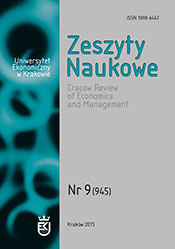Preferencyjne porozumienia handlowe – znaczenie dla handlu dobrami i innych dziedzin współpracy Unii Europejskiej z partnerami zagranicznymi
Preferential Trade Agreements – the Importance for Trade and other Areas of Cooperation between the EU and Foreign Trade Partners
Author(s): Elżbieta Kawecka-WyrzykowskaSubject(s): Economy
Published by: Wydawnictwo Uniwersytetu Ekonomicznego w Krakowie
Keywords: tariff preferences; Preferential Trade Agreements (PTAs); Regional Trade Agreements (RTAs); EU Common Commercial Policy
Summary/Abstract: The EU’s trade in goods with the majority of its partners is regulated by preferential agreements, of a unilateral or mutual character, under PTAs. Today, the role of PTAs in eliminating tariff barriers is not important for the EU, mainly because, first, EU imports include many goods for which the MFN duty rate is 0%, and, second, the preferential margin (the difference between 0% preferential duty and MFN duty above 0%) is low in the EU. Also, all mutually preferential agreements, be they free trade agreements or customs unions, provide for some exceptions. The exceptions cover specific agricultural products the EU considers to be sensitive. Apart from the improved tariff access the EU gains to partners’ markets, a far more important objective for the EU in negotiating PTAs, is that there is a willingness to eliminate barriers of regulatory character, which have recently been the most important impediments for EU exporters. PTAs go beyond the existing WTO multilateral arrangements and are used by the EU to achieve foreign policy objectives, such as political and economic stabilisation in its vicinity and strengthening the role of the EU in the world. The EU has recently negotiated mutually preferential agreements with a number of neighbouring countries, under the European Neighbourhood Policy. It has also been negotiating agreements with key developed countries, including Canada, Japan, and the US. It has done so to deepen its ties with those partners’ producers and investors, and also to address the low efficiency of WTO multilateral rules which do not properly apply to particular aspects of concrete relations.
Journal: Zeszyty Naukowe Uniwersytetu Ekonomicznego w Krakowie
- Issue Year: 945/2015
- Issue No: 09
- Page Range: 5-25
- Page Count: 21
- Language: Polish

